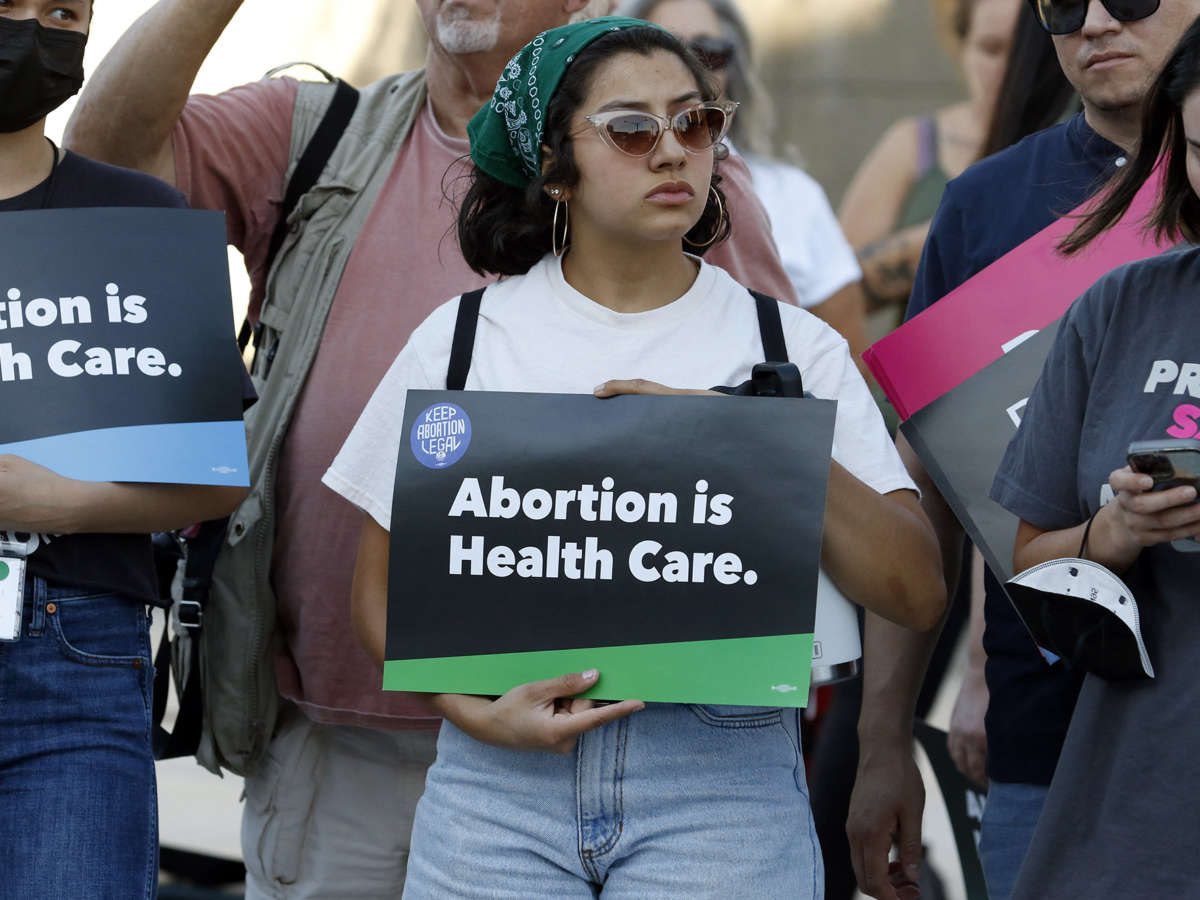In the days leading up to the overturning of Roe v. Wade, the National Right to Life Committee, the nation’s largest anti-abortion organization, released model legislation that would ban abortion and criminalize “aiding or abetting an illegal abortion.” The model legislation would impact anyone in the state who runs a website “that encourages or facilitates efforts to obtain an illegal abortion” or provides “referrals to an illegal abortion provider.” The legislation also includes a RICO–style provision for the use of proceeds from “a pattern of illegal abortion activity.” The penalties for this post-Roe model legislation, which the NRLC wants states across the country to impose, would include criminal and civil penalties for anyone reported to law enforcement. As Prism Editor-in-Chief Ashton Lattimore detailed in a recent op-ed, journalists would be directly targeted by this legislation, which essentially criminalizes freedom of speech regarding abortion.
The proposed legislation has caused some abortion reporters to be concerned about the future of abortion journalism and how it would impact their careers. Some also worry about how people will be able to receive accurate vital reproductive health information freely. While this is just model legislation that has not yet taken effect anywhere, some states like South Carolina have already been considering moving in this direction.
Jessica Mason Pieklo, Rewire News Group’s senior vice president and executive editor, said the legislation is targeting anyone in a reproductive health and access space. Rewire News Group is a nonprofit, independent newsroom that covers reproductive and sexual health from a pro-reproductive rights perspective.
“This is tremendously concerning for us,” Pieklo said. “It is a target for folks who tell the stories of patients who need to access care, explain how care is access, and the stories of providers and advocates who are helping make sure that happens.”
Caitlin Cruz, a senior reporter for Jezebel who covers abortion, said the intentional vagueness, yet extreme punitivity of the legislation particularly worries her. A part of her job includes reporting on clinic closures and where current abortion laws stand in each state, but as the legislation stands, even reporting basic facts about the state of abortion in hostile states could be criminalized.
“I have been worried,” Cruz said. “I really don’t know what that will look like, but I have to keep doing this work.”
While Cruz is worried about the legal implications a law like this could have on her work going forward, she is supported by Jezebel’s editorial team, legal team, and upper management, which she said are very supportive of their First Amendment rights. But for freelancers who move job to job, working without income security and other protections makes them especially vulnerable to legal attacks.
“There’s only so much protection someone without an institution can have,” Cruz said. “Reporting on abortion honestly and medically accurately is something that every reporter should be entitled to, and more importantly, patients and providers should be entitled to that kind of coverage.”
Cruz believes people have a moral right to accurate, accessible abortion coverage. Abortion policies shape the lives of people drastically, with reports already being seen of underage rape victims having to travel across state lines to legally receive abortion care. According to Cruz, bodily autonomy, and knowing accurate information about how to access that, should be available to everyone, and not censored for political gain.
“If we think that conservatives will stop at speech that targets abortion providers, people who write about abortion, people who offer scientific and medical information around abortion, we’re mistaken,” Pieklo said. “We know that this will bleed into other areas that evangelical and social conservatives deem inappropriate and deviant.”
Pieklo’s areas of concern outside of abortion include gender-affirming care and accessing health care for LGBTQ+ communities, considering the call to action Justice Clarence Thomas included in his concurring opinion that would bring more cases of sexual privacy into question. It’s a slippery slope, which could lead to laws similar to Comstock Laws of the late 1800s, which made it illegal to send “obscene” information through the mail and a misdemeanor to sell, give away, or even just possess something considered “obscene.”
“There’s no limiting principle,” Pieklo said. “What we are seeing is that the conservative movement is increasingly openly fascist in this country. These efforts go hand in hand, and it’s good to zero in and focus on something like abortion or focus on something like the Don’t Say Gay bill, but it’s really important to stitch them together to the larger narrative of fascism and authoritarianism that’s sweeping through conservative spaces and in this country.”
While Pieklo is concerned for the potential future of laws like these, she insists that there is no need to change the course of how journalists do their reporting.
“What we know about conservative movements is that they use facts like this as an attempt to chill speech in general,” Pieklo said. “If the media immediately sees this and turns tail and stops doing evidence-based reporting on abortion, particularly in the wake of the Dobbs decision, that alone is a victory for conservatives. And quite frankly, we may be in a position where journalists across the board have to take these risks because what’s the alternative?”
Pieklo remains hopeful that reproductive rights organizers on the ground are leading this movement, and she urges readers to look at their communities for people who have been organizing for years.
Prism is an independent and nonprofit newsroom led by journalists of color. We report from the ground up and at the intersections of injustice.


